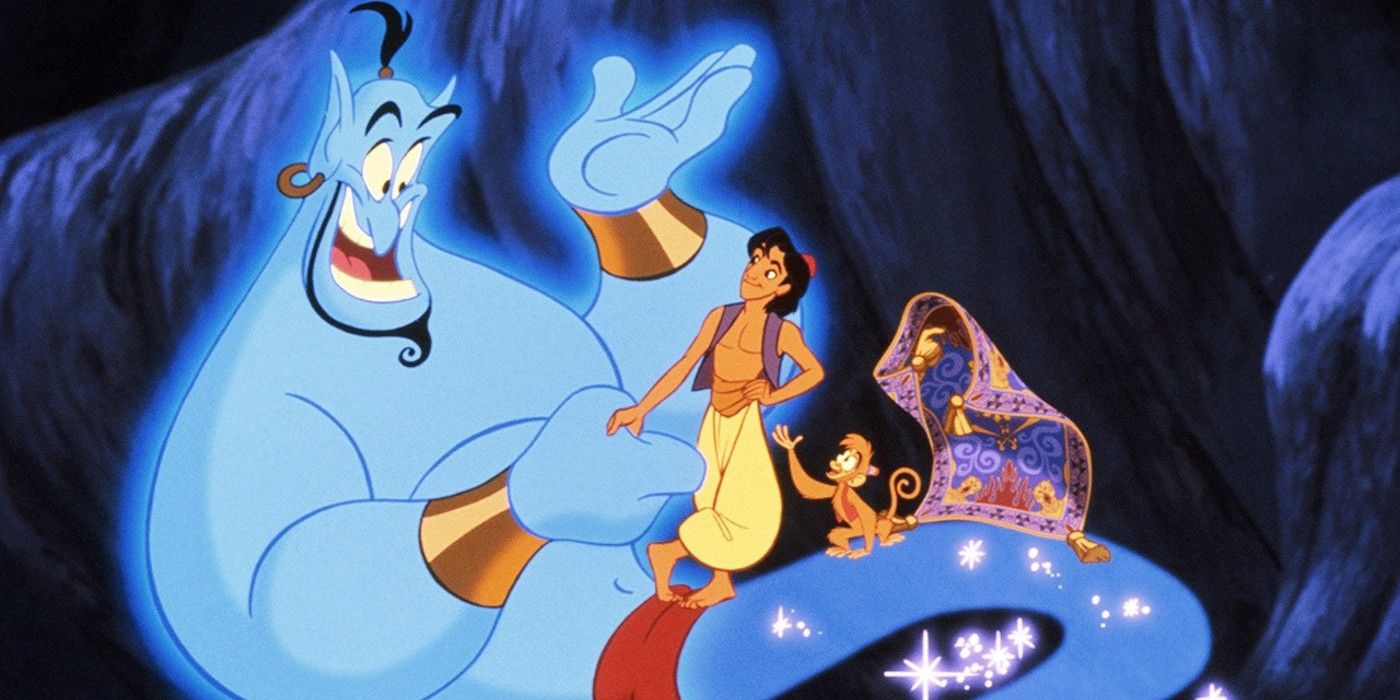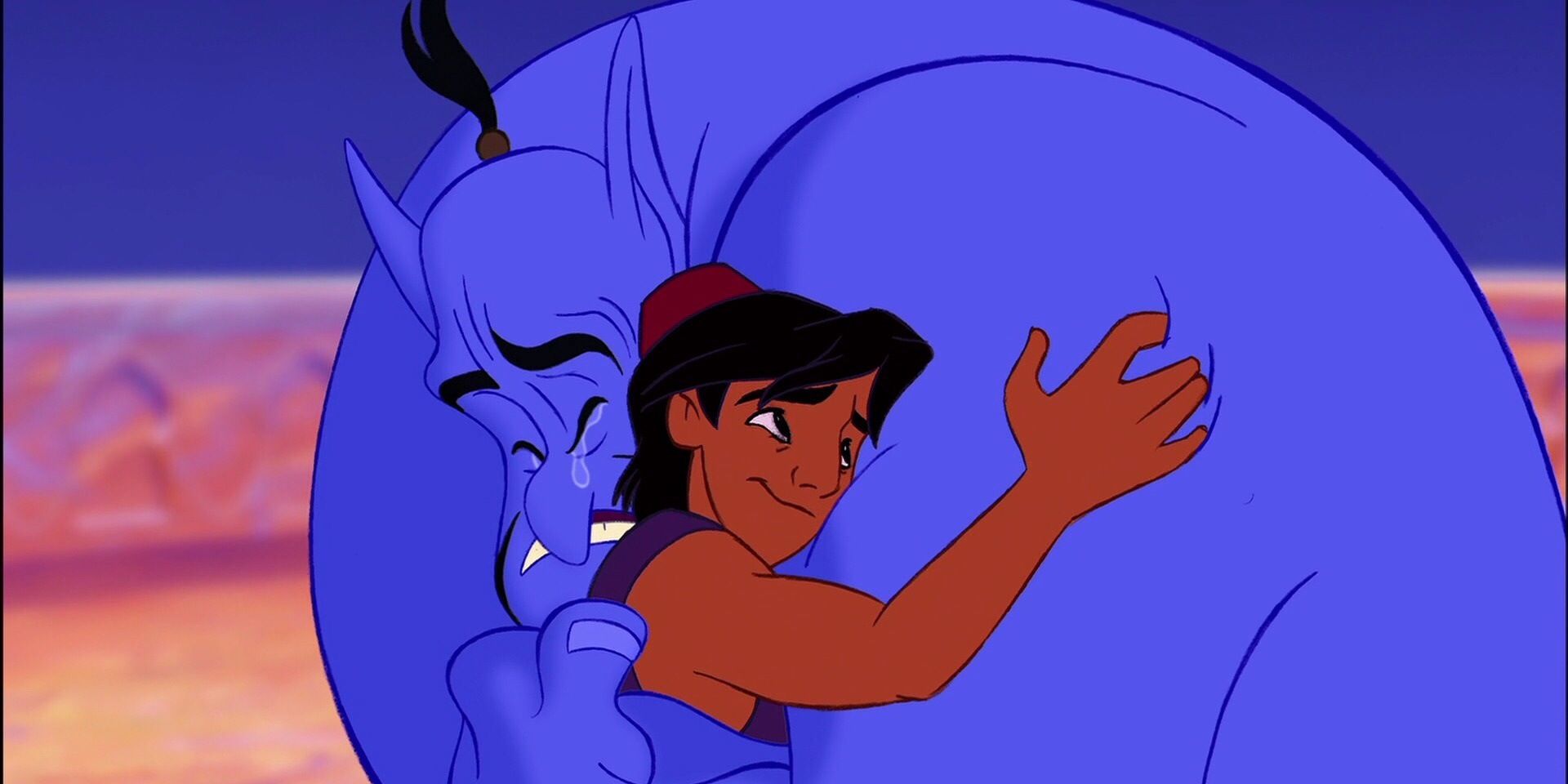Eric Goldberg, one of Walt Disney Animation Studios' most renowned animators, provides details on how the company is beginning to move back towards its traditional roots of producing 2D content. Goldberg first joined the Walt Disney Studio in 1992, working as the lead animator on Robin Williams' Genie in Aladdin, before later taking on the same role for Phil in Hercules, Louis the Alligator in The Princess and the Frog, and Rabbit in Winnie the Pooh. Along with his animation career, Goldberg has also acted as a co-director on Pocahontas as well as helming two segments of Fantasia 2000. He has additionally worked as the animation supervisor for certain elements of other Disney movies, including Tiana's fantasy sequence in The Princess and the Frog and Maui's tattoo animation in Moana. During his time working for the studio, Goldberg earned a number of Annie Awards for his iconic character designs and will appear in the upcoming Disney+ documentary series Sketchbook, illustrating his style of animation and his personal journey with Walt Disney Animation Studios.
Although the success of early movies such as Snow White and the Seven Dwarfs, Pinocchio and Fantasia allowed the Disney studio to gain the unparalleled reputation that it still holds, popularity in animated features gradually began to decline over the years and Walt Disney himself became less actively involved in producing them. The Disney Renaissance, beginning with The Little Mermaid in 1989, managed to rejuvenate interest in 2D animation for the studio, with the company producing some of its most lucrative movies of all time, such as the record-breaking The Lion King. However, the advent of 3D animation and Pixar Studios caused another slump in audience enthusiasm for hand-drawn movies, and 2011's Winnie the Pooh remains Disney's most recent 2D-animated feature due to the disappointing financial turnover it received.
But now the veteran animator has confirmed that Disney is focusing its attention once again on the medium that first made its name. Discussing the upcoming documentary with IndieWire, Goldberg outlines how hand-drawn animation is "part of the [studio's] legacy", as well as the "wonderful" and "perfectly appropriate" new direction the company is taking by "training up a new generation" to create more 2D animated projects. Read the Genie animator's full comment below:
I’ve been campaigning for a long time to train up people in hand-drawn [animation], and, as the CG films became more and more popular, that idea became less and less important to the studio. But now we have an atmosphere and a group of people who recognize that’s part of the legacy here, and to actually have content that requires hand-drawn animation is absolutely great. Thank goodness we have people who can do both here, but to actually commit to training up a new generation is a wonderful thing and I think perfectly appropriate for [us].
Goldberg also confirmed that plans for future hand-drawn features/TV series cover a broad spectrum of original work, content featuring familiar characters/worlds, and "hybrids." Given the success of the company's recent 2D animated projects, such as Disney's experimental shorts series Short Circuit, this move back towards producing more hand-drawn animation highlights a resurgence of interest in the form from both audiences and Walt Disney Studios. Although Goldberg doesn't elaborate on any specific projects that are currently planned, the fact that they are training new animators alongside "people who can do both [3D and 2D]" suggests an intention to hit the ground running with the company's first hand-drawn feature in over 10 years.
This will no doubt come as very welcome news to viewers eager to see Disney returning to its animation roots. And with the Disney studio celebrating its centenary next year, speculation will likely be rife as to what hand-drawn projects will be released to coincide with the momentous anniversary. Indeed, it may well be that the release of Sketchbook on Disney+ this week will help give audiences a few clues as to what's in store for the future of Walt Disney Animation Studios.
Source: IndieWire


